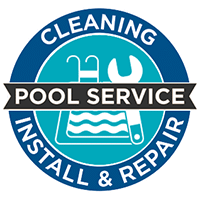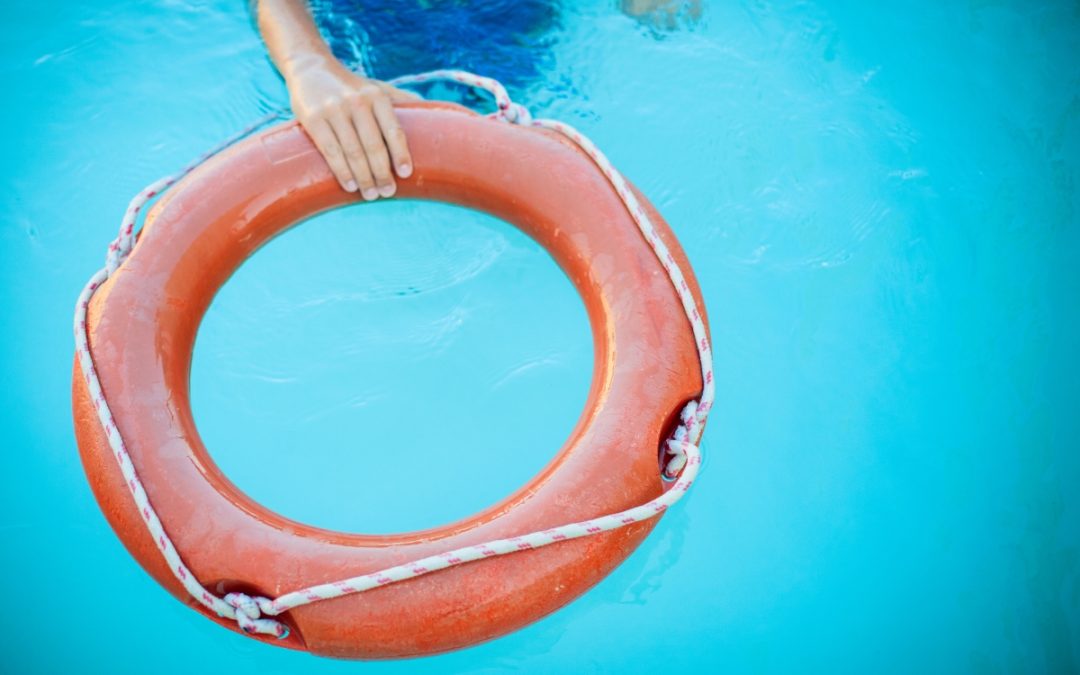Summertime is the perfect season for families to come together and make memories. One popular activity is taking a dip in the pool and splashing around for hours on end. But, as with any activity, it’s important to stay safe and use caution when enjoying a fun swim. That’s why having a set of pool safety rules is essential before you get in the water. Accidents can happen quickly, especially when kids are around, and that’s why proper safety regulations are crucial for a safe and enjoyable pool experience.
From ensuring adult supervision to not running around the pool deck, these 10 pool safety rules will make sure your family’s fun in the sun is worry-free. Everyone wants to make the most of the summer and enjoy some time in the pool without any risks. Get ready to have a great time with these easy steps.
Rule 1: Use Appropriate Swimming Attire

Swimming is one of the most popular activities during the summer months, so it is essential to take safety precautions. The first key rule for pool safety is using appropriate swimming attire. For adults, it is recommended to wear swim trunks or board shorts with a t-shirt, rash guard, or swimsuit.
For children, it is best to use a child-sized, gender-appropriate swimsuit with a built-in diaper cover for toddlers. Additionally, it is important to remove any clothing with strings or drawstrings as it can get caught in the drain and cause other warnings. Lastly, all swimmers should wear snug-fitting goggles to protect their eyes from chlorine or salt buildup.
Rule 2: Make Sure Everyone Knows How to Swim
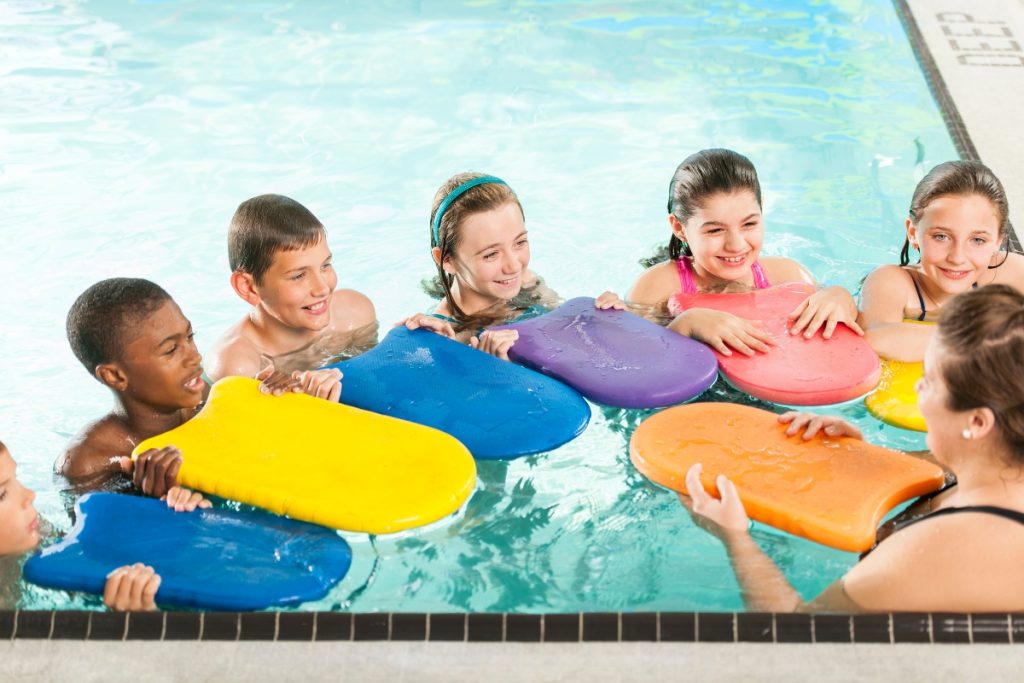
Swimming is an enjoyable and healthy activity, but it is important to prioritize safety when using the pool. Rule 2 of pool safety is to ensure that everyone knows how to swim. Knowing how to swim prevents children and adults from accidentally slipping into the pool and drowning.
Children can take swimming lessons to learn basic swimming skills such as floating, kicking, and paddling. Adults can also take beginner lessons if needed, and further develop their form and practice strokes. It is important for adults to stay updated with pool safety laws and regulations, both for their own safety and for the safety of their children.
It is also important to make sure children are aware of the water around them. This includes understanding how deep the water is, where the diving board is located, and any underwater games or toys that may become a hazard. Knowing these things will prevent children from getting into unsafe situations while playing in the pool.
Finally, make sure everyone feels comfortable in the water. Learning to swim is not only important for enjoying the pool safely, but is also important for building confidence in the water. Encourage children or adults to work at their own pace and trust the guidance of their swim instructor.
Rule 3: No Running or Horseplay in the Pool
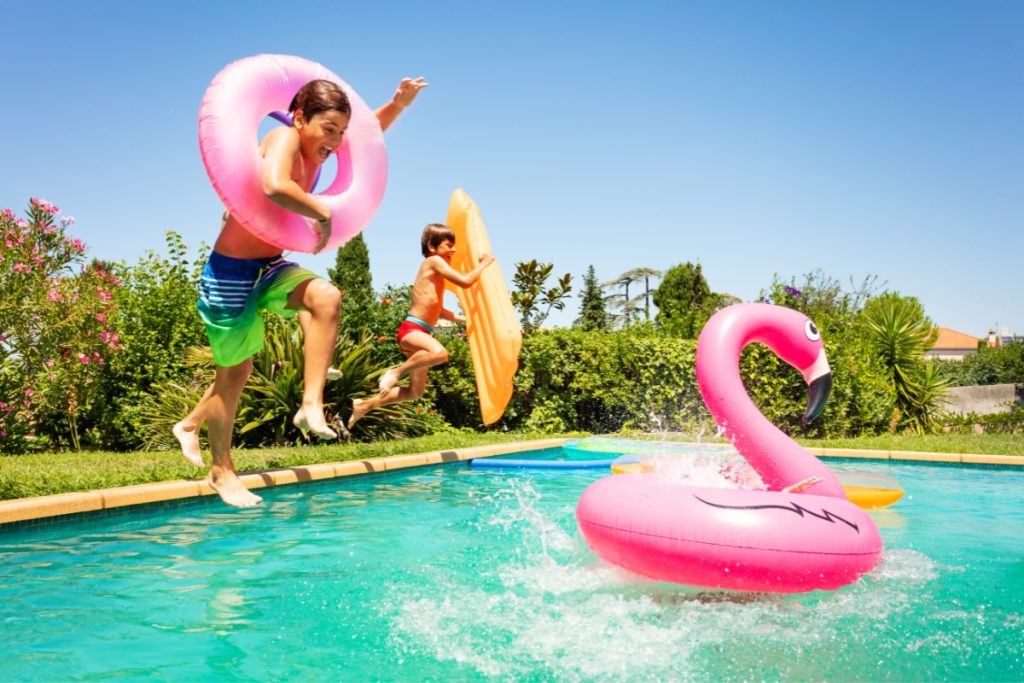
It is natural to want to have fun in and around the pool, but it is essential to remember to behave responsibly while you are there. Running and horsing around the pool can create a risky environment and increase the chances of someone getting injured.
Not only can running lead to slips and falls, but it can also cause waves in the pool which can be hazardous to those that are not familiar with swimming. Swimming pool safety rules should always include no running or horsing around the pool, to ensure that all swimmers are safe and enjoy their experience.
Swimmers should also be aware of water toys, such as water slides and diving boards. While these items can be fun and exciting, they can also be dangerous if used incorrectly. Water slides can cause slippery surfaces and diving boards can create a lot of splashback, so it is important to use these items with caution and within the designated areas.
Rule 4: Always Have a Responsible Adult Supervising
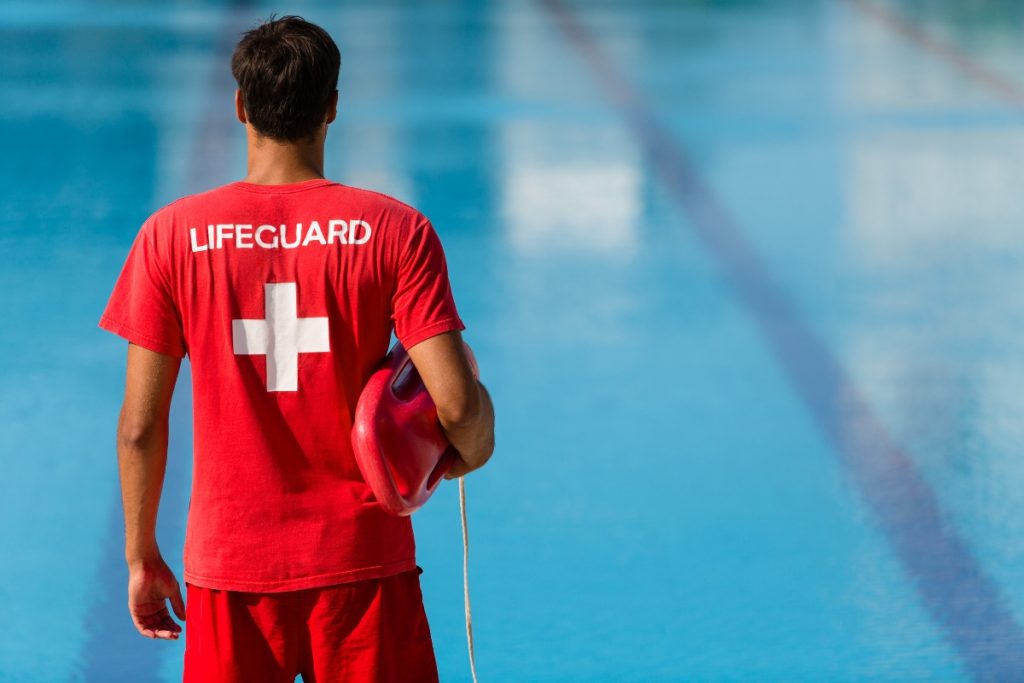
Kids and adults alike need an adult to consistently make sure that everyone follows pool safety rules. Children under the age of 13 should never be alone in or near water, so an adult should always be present with them. It’s also essential for even teen swimmers to always have a responsible adult present. The adult should know how to swim and have CPR and first aid training.
Additionally, the supervisor should continually watch swimmers and enforce safety rules. It’s important the adult pays attention and stays focused on the pool area at all times. This can include monitoring activities, such as no running, no pushing, and no horseplay.
They should also ensure lifesaving safety items, such as a ring buoy, life preserver, and shepherd’s crook are ready to use. Lastly, the adult should always be available to provide help in case of an unexpected emergency.
Rule 5: Make Sure Pool Equipment is Maintained Properly
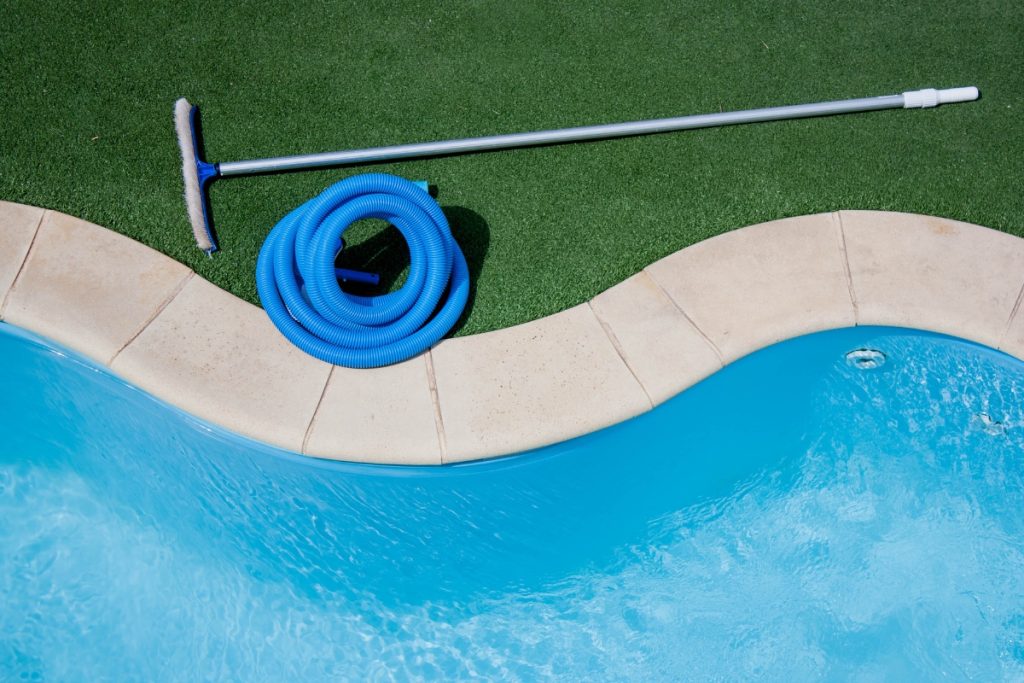
Pool equipment includes pumps, filters, and ladders, just to name a few. It is essential for pool owners to maintain the pool equipment in order to ensure your pool’s safety and overall performance. Here are some tips to help maintain the pool equipment:
- Clean and backwash the pool filter regularly. This should be done at least once a month, or more if possible, to prevent clogged filters that can lead to inefficient water circulation.
- Make sure your pool pump is running efficiently. Check the pool pump to make sure it is functioning properly and is not leaking. Replace any worn-out parts such as the impeller or motor.
- Inspect pool ladders and stairs periodically. In order to prevent any accidents, it is important to regularly inspect the ladders and stairs for any sign of wear and tear. If there is any rust or loose parts, replace them immediately.
- Clear the pool skimmer basket. This should be done daily to ensure that the pool isn’t clogged with debris and the water circulation is maintained.
- Ensure the water level is maintained. Keep the water level of your pool at the right height so it runs efficiently, taking into account evaporation and rain runoff.
By properly maintaining the pool equipment, pool owners can enjoy a safe and fun summer. Maintaining the pool equipment regularly is essential for preventing any swimming-related accidents and keeping the pool clean and safe.
Rule 6: Be Aware of Weather Conditions
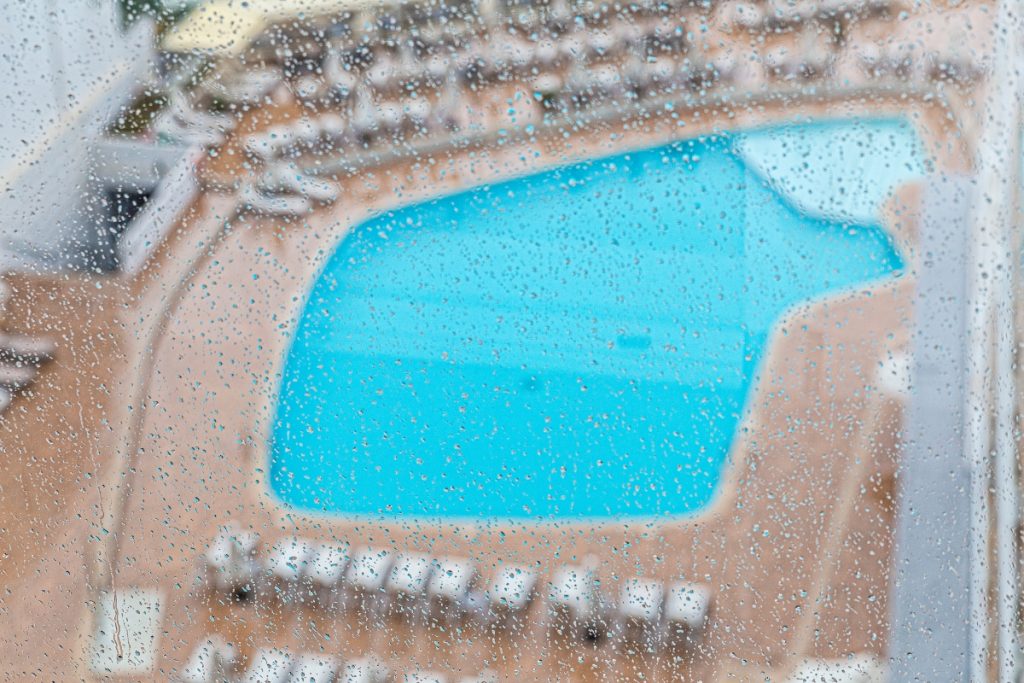
Weather can dramatically affect the safety of a pool, and when swimming outside, it’s crucial to be aware of the weather conditions. Conditions like thunderstorms, lightning, strong winds, hail, high temperatures, and low temperatures can be dangerous for users of the pool.
It’s important to check the forecast regularly before using a pool. During thunderstorms, swimmers should immediately stop swimming and get out of the water. Even if lightning is not seen, the risk of lightning strikes still exists, and it’s best to stay out of the water until the storm passes.
Strong winds can whip up waves and create an intense current in a pool. The strong winds can also blow debris, such as leaves and twigs, into the pool, which can clog filters and pumps. If the wind is too strong, it’s best to wait until the winds settle down before getting into the pool.
Hail can cause serious injury to swimmers, and even break the surface of the pool, so swimming should be avoided during hail storms. High temperatures can cause sunburn and dehydration, so it’s important for swimmers to wear sunscreen and stay hydrated. Low temperatures can also put swimmers at risk of hypothermia, so it’s important to limit the amount of time spent in cold water.
Rule 7: Establish Clear Ground Rules and Guidelines
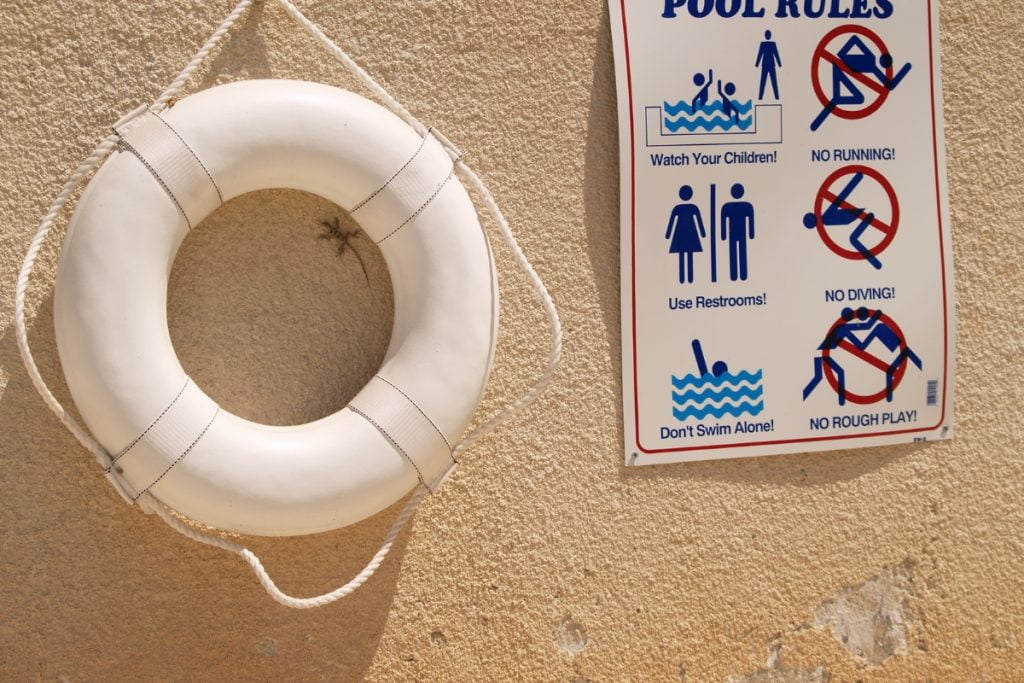
Pool safety is important for a safe and fun swimming experience. It’s essential to establish ground rules before jumping in the pool. All swimmers, children and adults, should be made aware of the rules and expectations that need to be followed while in the water. This will help keep everyone safe and allow everyone to get the most out of their pool time.
There are a few basic ground rules that should be set in place to ensure a safe swimming environment. First, all swimmers should be informed when there is no lifeguard on duty. Additionally, it’s important to keep a close eye on children and make sure that any unsafe behavior does not go unnoticed. Extra safety precautions should be taken for small or inexperienced swimmers. It’s also a good idea to limit the number of swimmers in the pool at one time to reduce overcrowding.
Another important rule is that all swimmers should wear life jackets or other flotation devices if they can’t swim. Alcohol and rowdy behavior are not allowed in the pool. Also, all swimmers must shower before entering the pool and abide by proper sanitation guidelines. To ensure everyone respects these rules, it’s important to post signs and make them visible to everyone.
By putting ground rules in place, everyone can have an enjoyable time in the pool without compromising safety. Establishing clear guidelines will help keep swimmers safe and ensure everyone can make the most of their swimming experience. Not only will this improve safety protocols, but it will also promote a positive atmosphere for swimming and make it a more enjoyable activity.
Rule 8: Wear Appropriate Safety Gear
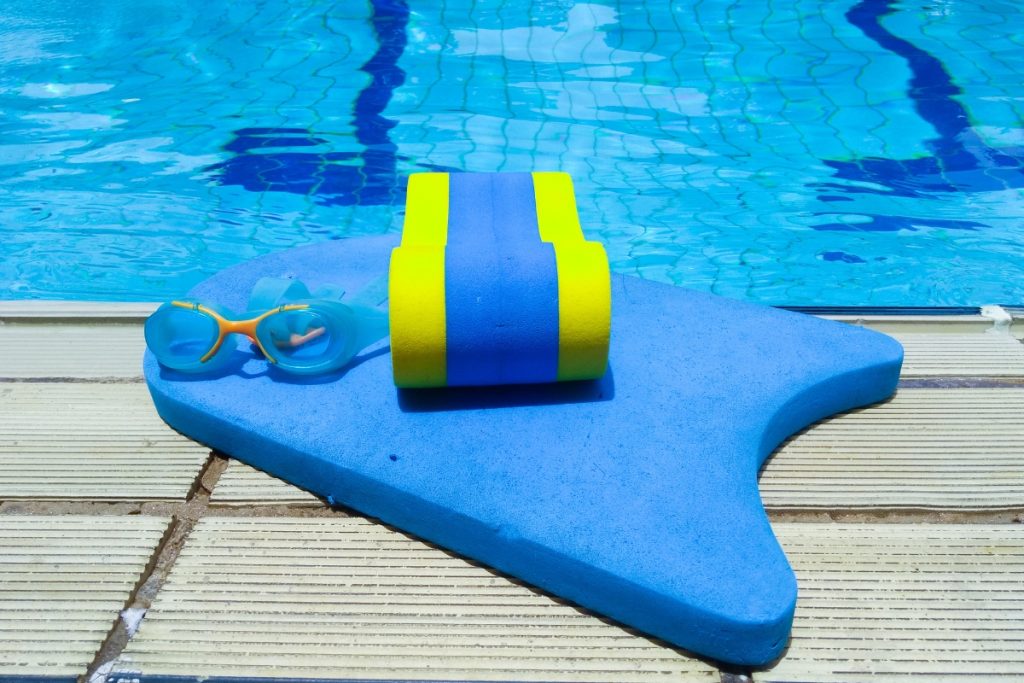
No matter your age or swimming ability, it’s important to always wear appropriate safety gear when in and around a swimming pool. The most important piece of safety equipment is a U.S. Coast Guard-approved life jacket or personal flotation device (PFD). These must fit properly and securely, so it’s best to get each individual in the family their own life jacket.
If you’re in a deeper pool, make sure the life vest is tight enough that the head and arms will stay above the surface if they were to lose consciousness. Additionally, wearing swim fins can help swimmers maneuver through the water more easily, while arm floats and kick boards are good for amateur and younger swimmers.
For pools with a diving board, be sure to follow the posted regulations, including how far away from the board to be before diving. Everyone should also look up, keep an eye out and make sure there isn’t anyone else in the area while climbing up the ladder. Always remember to dive straight ahead, not to the side.
Finally, if there are any pool toys such as floats, rafts or noodles, make sure to never leave them unattended in the water. In some cases, life vests should be worn when using them, even by competent swimmers. When not in use, these items should always remain out of the water.
Rule 9: Keep All Pool Chemicals Out of Reach
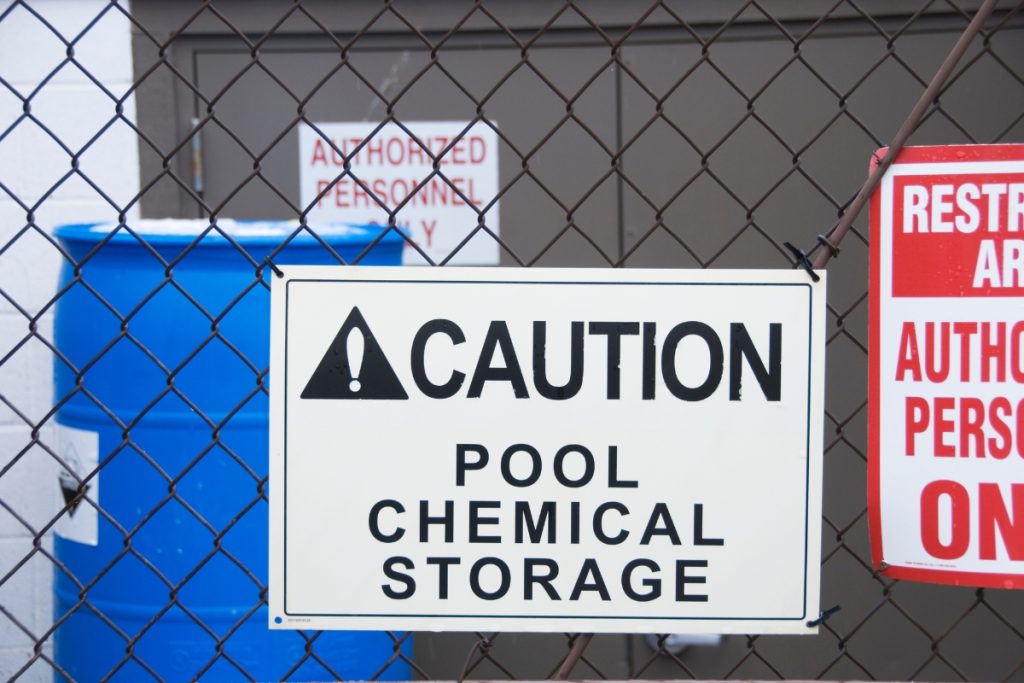
Safety is the number one priority when it comes to swimming, but pool maintenance should also be taken into consideration. All pool chemicals should be stored away in a secure location, away from direct sunlight and preferably locked. This is especially important if there are children in the house, as they could be a danger to themselves if they get access to them. To be extra safe, make sure everyone knows the danger of the chemicals and keeps them out of reach.
It is also important to check the chemical levels of the pool on a regular basis. Generally, it is advised to test the water for pH, chlorine and alkalinity every other day. Make sure to follow the dosage instructions and keep them stable. If too much or too little is added, it could be dangerous to swimmers as well as damage the pool’s structure and equipment.
Finally, it is a good idea to have a skimmer handy to clean the surface of the pool of leaves, dirt, and bugs. This will reduce the amount of strain on your pool filter, improve hygiene and make it safer for swimmers. In addition, make sure to add the right amount of algaecide and make sure the pool is emptied, cleaned and refilled occasionally to make sure it is in good condition.
Rule 10: Do Not Dive In Shallow Water
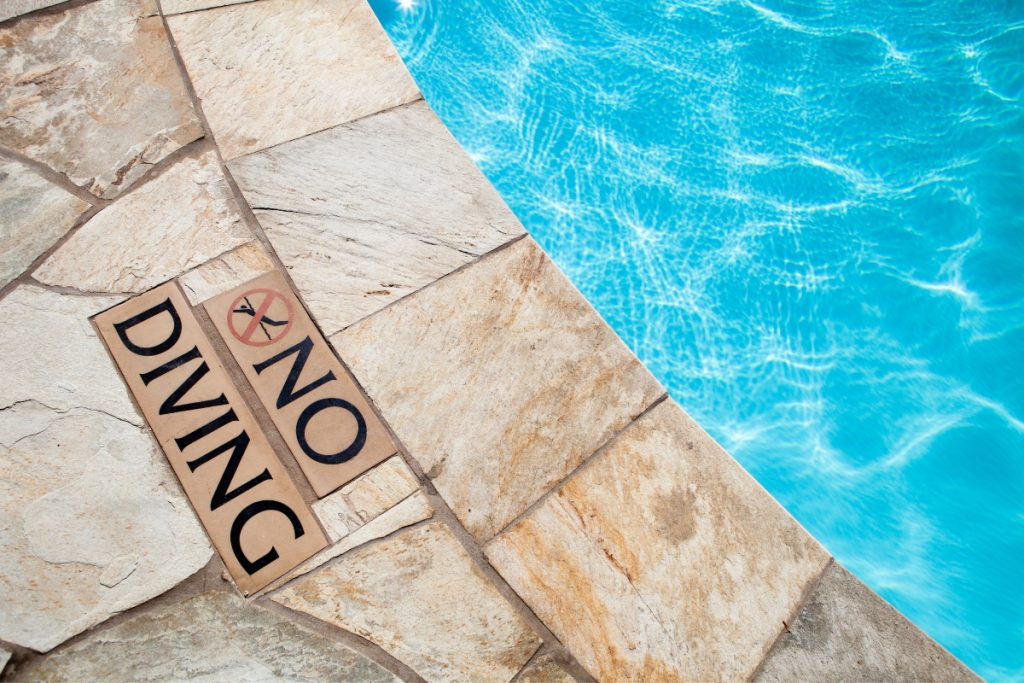
Diving in shallow water is one of the most dangerous activities for swimmers of all skill levels. Even experienced swimmers may think that a pool looks deep because of its size, but it’s best to be sure before going in. The most important safety rule when it comes to diving is to only take the plunge when you know the water is at least nine feet deep. Anything less than that can result in serious injury, such as neck fractures and spinal cord damage.
It is also important to make sure that there are no obstructions in the water when diving, such as rocks, ladders or steps, as these can also cause much harm. If a pool is shallow or there is debris or an obstruction, be sure to swim or walk around it to avoid danger. Additionally, it can be helpful to ask the lifeguard on duty to take measurements of the depth of the pool to ensure a safe dive.
When diving, never jump headfirst or feet-first into a pool. It is always safest to enter the water head first, either in the form of a dive or a shallow dive. This can help to prevent the risk of those dangerous neck and spine injuries. In addition, keep your arms and legs close to the body while diving, and make sure to push off from the wall or floor of the pool, rather than from the side walls.
Lastly, take into account any age restrictions at the pool. Some pools will have a specific rule for allowing adults, teens, and children of different ages to dive. These regulations exist for a reason and it is important to abide by them for the safety of swimmers of any age.
Following the tenth rule of pool safety will help ensure that everyone has a safe and fun summer. Don’t take unnecessary risks by diving in shallow water, and be mindful of the restrictions set by the pool. Be sure to assess the depth of the pool before jumping in, and always practice caution while in the water.
Conclusion
At the end of the day, the best thing you can do to ensure a safe and fun summertime is to adhere to pool safety rules. With just a few simple tips, like having life jackets on hand, having parents supervise children, and only letting one person at a time go down a slide, everyone can enjoy the pool for a great summer. Still, it’s important to remember that even with these rules in place, drowning is a real risk. When it comes to swimming pool safety, nothing is more important than taking the necessary measures to ensure the safety of yourself and your loved ones.
To ensure the safety of your pool, Clear Water Pools of Atlanta is here for you! Our range of pool services from pool building and repair to maintenance will help ensure that your pool is in top condition during the summer season. Contact us today for a free estimate or give us a call at 770-406-8638 and find out how we can maintain the condition and safety of your pool today.

